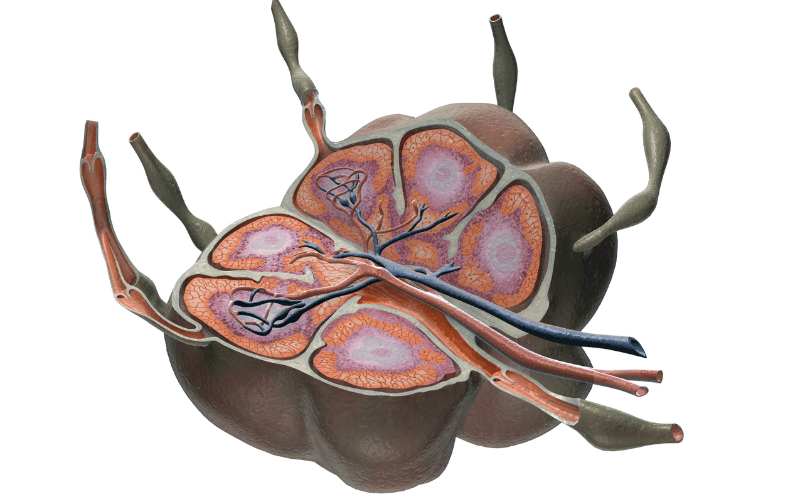Symptom 8: Swelling of Lymph Nodes

Lymph nodes play a pivotal role in our body’s immune response, acting as filters that trap and destroy harmful substances. In the context of MCC, the swelling or enlargement of these nodes often indicates that the cancerous cells have migrated from their primary site. This can be a sign of metastasis, where the cancer spreads to other parts of the body. When MCC reaches the lymph nodes, it’s signaling a more advanced stage of the disease.
The initial detection of swollen lymph nodes can be tricky. These nodes, when enlarged, often feel like firm, rubbery nodules under the skin. They might be painless, leading many to overlook them. Common locations include the neck, armpits, and groin. Regular self-checks can aid in early identification.
Swelling of the lymph nodes is not exclusive to MCC. Numerous conditions, including common infections, can cause them to enlarge. However, persistent swelling, especially when accompanied by other MCC symptoms, warrants immediate attention. Enlarged nodes could mean that the cancer is advancing, potentially moving to other body organs.
The best defense against the spread of MCC to the lymph nodes is early detection and prompt treatment. Regular skin checks, awareness of personal risk factors, and timely medical consultations can be instrumental. If one suspects swollen lymph nodes due to MCC, diagnostic tests such as biopsies or imaging might be recommended by a physician. (8)